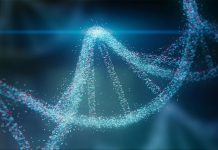
In a new study, researchers found a link between exposure to high levels of estrogen sex hormones in the womb and the risk of developing autism.
The research was conducted by a team from the University of Cambridge.
In a previous study, scientists measured the levels of four prenatal steroid hormones, including two known as androgens, in the amniotic fluid in the womb.
They discovered that they were higher in male fetuses who later developed autism.
These androgens are produced in higher quantities in male than in female fetuses on average, so might also explain why autism occurs more often in boys.
They are also known to masculinize parts of the brain and to have effects on the number of connections between brain cells.
In the new study, the team tested the amniotic fluid samples from the same 98 individuals sampled from the Danish Biobank.
The examined prenatal sex steroid hormones called estrogens.
This is important because some of the hormones previously studied are directly converted into estrogens.
The team found all four estrogens were strongly elevated in the 98 fetuses who later developed autism, compared to the 177 fetuses who did not.
High levels of prenatal estrogens were even more predictive of the likelihood of autism than were high levels of prenatal androgens (such as testosterone).
The team says genetic factor is a well-established cause of autism, and these hormones may interact with genetic factors to affect the development of autism.
Their next step will be to study all these possible sources and how they interact during pregnancy.
The leader of the study is Professor Simon Baron-Cohen, Director of the Autism Research Centre at the University of Cambridge.
The study is published in the journal Molecular Psychiatry.
Copyright © 2019 Knowridge Science Report. All rights reserved.



